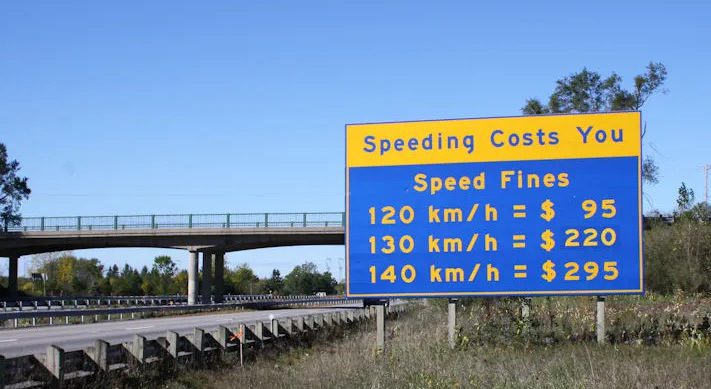Mistakes on Speeding Tickets
Speeding Ticket Errors
Most minor mistakes on speeding tickets are allowed to be fixed or corrected by the court. Minor errors will not result in a ticket being canceled, where as most fatal mistakes should result in the ticket being dismissed or withdrawn, with exceptions.
- fixable by the court
- information not crucial for a conviction
- will not get the ticket canceled
Fatal errors are:
- not fixable
- crucial for a conviction
- can result in the ticket being canceled
Minor Mistakes
Where there’s a “minor mistake” on a speeding ticket, the court has the authority to amend and correct these errors. This provision ensures that small inaccuracies don’t unfairly impact the legal process.
Minor errors that can be corrected by the court on a speeding ticket include:
- Spelling mistakes in names or other words.
- Incorrect or unclear descriptions of locations.
- Errors in the spelling of names or locations.
- Incorrect times noted on the ticket (except in cases involving time-specific signage).
- Inaccurate descriptions of the vehicle involved.
When minor error are brought before the court, the justice or Justice of the Peace (JP) may make the necessary corrections.
Understanding that the court can fix these minor issues, highlights the importance of carefully reviewing your traffic ticket for any inaccuracies.
Where an error is presented, be prepared to argue the legalities of the law, case law and any legal precedents to the justice.
Fatal Errors
Fatal errors on a traffic ticket are significant mistakes that can potentially lead to the ticket being canceled.
However, the process of addressing these errors isn’t always straightforward and may involve specific conditions or considerations.
While a Justice of the Peace is generally expected to cancel a ticket due to a fatal error, this outcome isn’t guaranteed. In many instances, the ticket isn’t immediately dismissed, and it may be necessary to file an appeal to address the error properly.
In court, when a fatal error is identified, the Justice might argue that by the defendant appearing in court, any potential prejudice caused by the error is negated. In such situations, the court or judge might still consider upholding a conviction for the speeding ticket, irrespective of the identified error.
This stance necessitates that where there is a fatal mistake that in fighting the ticket there is a need be prepared to discuss the legal nuances of the case. They should be ready to present relevant case law and legal precedents that support the dismissal of the ticket due to the fatal error. This approach involves a detailed understanding of the law and the ability to effectively argue why the error undermines the validity of the ticket.
Understanding the implications of fatal errors on traffic tickets is crucial. It highlights the importance of carefully examining any traffic ticket received and being prepared to navigate the legal system if such errors are present.
Advocates and defendants should be aware of the potential challenges in getting a ticket dismissed due to a fatal error and be ready to present a strong legal argument in court.
Justice to Examine the Certificate
Prior to entering a plea, the justice is “suppose” to examine the ticket to ensure that there are no fatal errors.
Before a plea is entered in a speeding ticket case, it’s the responsibility of the justice to check the ticket for any fatal errors. This examination is a crucial step in the legal process to ensure that the ticket is valid and free from significant mistakes.
If the justice identifies a fatal error on the ticket, they are expected to cancel or quash the ticket. “Quashing” a ticket is the legal term used for its cancellation.
The defendant, who is the individual issued the ticket, or their representative, has the right to request that the justice reviews the “Certificate of Offence”. This is an essential step, particularly if the defendant or their advocate believes there might be a fatal error on the ticket.
In situations where the advocate finds a fatal error, they can bring this to the attention of the justice, along with a formal request to quash the certificate. Traffic tickets must be “Proper on its face”, meaning it must be free from any errors that could affect its legal validity.
If upon reviewing the Certificate of Offence the justice determines that it is not “Proper on its face” — in other words, if it contains a fatal error — then they are expected to cancel the ticket.

Common Errors
| Error | Fatal | Fixable |
|---|---|---|
| Date is wrong | yes | no |
| Time is wrong | No | Yes |
| Name is wrong- spelling | No | Yes |
| Address is wrong | No | Yes |
| Licence number is wrong | No | Yes |
| Wrong location | Maybe | Maybe |
| Charge is wrong | Maybe | Maybe |
| Charging Act is wrong | Maybe | Maybe |
| Signature of officer missing | Usually | Maybe |
| Fine is wrong | Yes | No |
| No Jurisdiction on ticket | Yes | No |
Caution about Errors
Drivers may want to seek legal advice about dealing with the speeding ticket error.
Whether or not a speeding ticket is canceled due to a fatal error or minor error is still up to the justice.
Many courts and judges will have the opinion that once you appear for your case, then the error doesn’t matter.
The legal ruling on this is that you have “Attorned to the Jurisdiction of the ticket”, therefore the error is not applicable in your situation.
When dealing with errors like improper fines, an experienced advocate or paralegal may advise you go the route of not responding to the ticket.
Failing to Respond and Improper on its Face
Where you have not responded to the ticket the justice is suppose to review the ticket to ensure it is “proper on it’s face”, meaning there are no errors on the ticket.
If the justice finds that the ticket is proper on it’s face, then they may register a conviction.
Where the ticket is improper on it’s face, the proper remedy for the court is to quash or cancel the ticket.
The justice of the peace, do not always make the decisions that they should have or that you believe they should have.
Should the justice make an error in judgement then the only remedy left to the defendant is to take the case to the appeal court.
Error on Ticket – Judge does not Cancel
At this stage of the hearing if the justice sees the error on the speeding ticket they should to cancel or “quash” the ticket.
Where the justice does not see the error or doesn’t cancel the ticket and registers a conviction, then you have to file an appeal to the higher court.
The appeal would say that the Justice made an error in judgment, in that the speeding ticket had a fatal error and the Justice should have quashed or canceled the ticket.
As this starts to get into technical law you may be advised to seek the legal help of a speeding ticket paralegal.
Always fight your speeding ticket!



